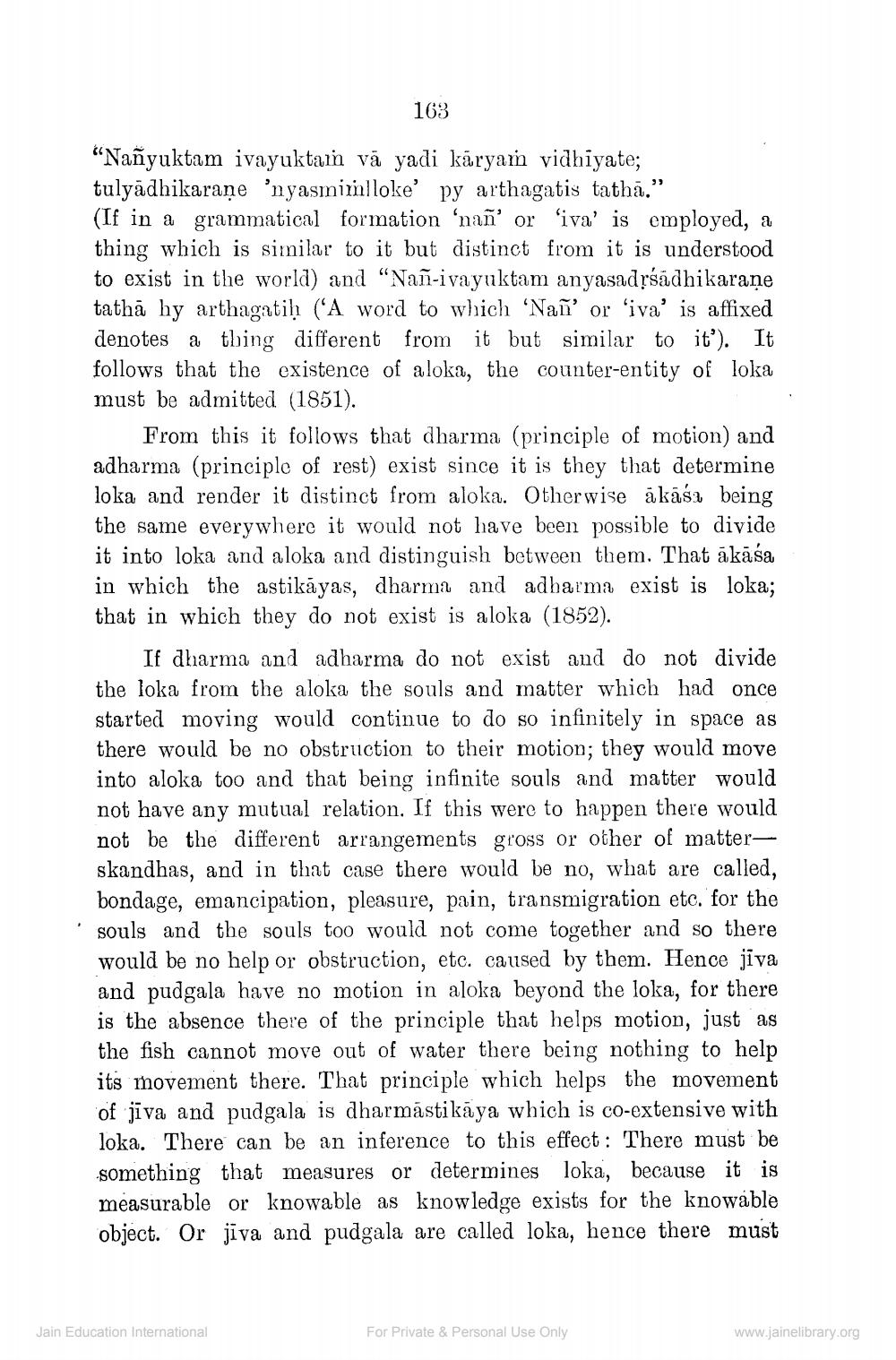________________
163
"Nañyuktam ivayuktai vā yadi kāryam vidhiyate; tulyādhikarane 'nyasmimlloke' py arthagatis tathā.” (If in a grammatical formation 'nan' or 'iva' is employed, a thing which is similar to it but distinct from it is understood to exist in the world) and "Nan-iva vuktam anvasadrsadhikarane tathā hy arthagatih (“A word to which ‘Nañ' or 'iva' is affixed denotes a thing different from it but similar to it'). It follows that the existence of aloka, the counter-entity of loka must be admitted (1851).
From this it follows that dharma (principle of motion) and adharma (principle of rest) exist since it is they that determine loka and render it distinct from aloka. Otherwise ākāśa being the same everywhere it would not have been possible to divide it into loka and aloka and distinguish between them. That ākāśa in which the astikāyas, dharma and adharma exist is loka; that in which they do not exist is aloka (1852).
If dharma and adharma do not exist and do not divide the loka from the aloka the souls and matter which had once started moving would continue to do so infinitely in space as there would be no obstruction to their motion; they would move into aloka too and that being infinite souls and matter would not have any mutual relation. If this were to happen there would not be the different arrangements gross or other of matterskandhas, and in that case there would be no, what are called, bondage, emancipation, pleasure, pain, transmigration etc. for the souls and the souls too would not come together and so there would be no help or obstruction, etc. caused by them. Hence jīva and pudgala have no motion in aloka beyond the loka, for there is the absence there of the principle that helps motion, just as the fish cannot move out of water there being nothing to help its movement there. That principle which helps the movement of jīva and pudgala is dharmāstikāya which is co-extensive with loka. There can be an inference to this effect: There must be something that measures or determines loka, because it is measurable or knowable as knowledge exists for the knowable object. Or jīva and pudgala are called loka, hence there must
Jain Education International
For Private & Personal Use Only
www.jainelibrary.org




